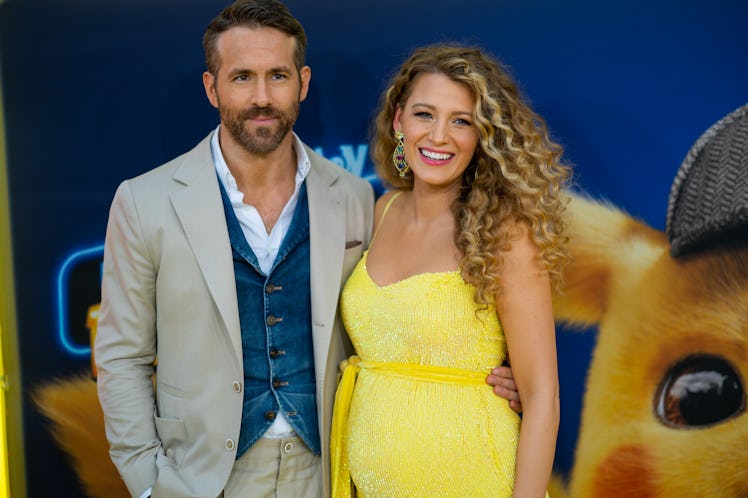
Ryan Reynolds Finally Commented On His Plantation Wedding With Blake Lively
It goes without saying that Blake Lively and Ryan Reynolds are considered one of Hollywood's golden couples, with countless interviews and social media posts proving that their relationship is sheer #goals — that is, except for the fact that their 2012 wedding took place on a plantation, a site with strong historical connections to slavery. Ryan Reynolds' quote about his plantation wedding with Blake Lively is significant for several reasons: not only does it demonstrate that he learned a lesson from this mistake, but it also shows that he can take responsibility for an upsetting decision.
First, here's a little background. The wedding in question was held at Boone Plantation & Gardens in Mount Pleasant, South Carolina. Martha Stewart's design team helped to plan and execute the super secret and intimate affair, which USA Today reports only included 35 guests. According to the venue's website, nine historic cabins that housed enslaved people have been preserved on the property as part of a Black History in America Exhibit. "Visitors are able to see the different aspects of daily life, how Black Americans worked and lived, struggles that were faced, as well as follow different periods of historical progression from the beginning of their arrival in America up to present day," the website explains.
So, it should come as no surprise that when the word got out that this was where Lively and Reynolds had chosen to say their "I do's," there was quite a bit of backlash — and not just from people on social media. In December of 2019, Pinterest removed and banned all photos of the wedding from the site. The idea was to avoid promoting, glamorizing, or glorifying the idea of holding celebrations on these plantation sites, where many enslaved people suffered and were held captive.
In a new interview with Fast Company, Reynolds finally spoke out about their decision, saying it's something they'll always be "deeply and unreservedly sorry for."
"It’s impossible to reconcile," he told Fast Company. "What we saw at the time was a wedding venue on Pinterest. What we saw after was a place built upon devastating tragedy."
Reynolds admitted in the interview that at the time, they merely saw it as a picturesque venue on Pinterest. It wasn't until later that they saw it as a "place built upon devastating tragedy."
Apparently, their regret was significant; Reynolds revealed that he and Lively eventually got re-married at home years later. Still, he admitted that he was haunted by their decision.
"Shame works in weird ways," he explained to Fast Company. "A giant f*cking mistake like that can either cause you to shut down or it can reframe things and move you into action. It doesn’t mean you won’t f*ck up again. But re-patterning and challenging lifelong social conditioning is a job that doesn’t end."
Clearly, Reynolds has learned from this offensive oversight and is motivated to do better. On May 31, he and Lively shared the same Instagram post, which acknowledged their efforts to raise their children to be more cognizant of these issues.
"We've been teaching our children differently than the way our parents taught us," they wrote. "We want to educate ourselves about other people's experiences and talk to our kids about everything, all of it... especially our own complicity."
In the same post, they also announced their $200,000 donation to the NAACP's Legal Defense Fund.
“We want to use our privilege and platform to be an ally," they added. "And to play a part in easing pain for so many who feel as though this grand experiment is failing them.”
Then, in a YouTube video announcement posted on July 31, Reynolds shared that he was launching a self-funded diversity and inclusion program called The Group Effort Initiative, which will offer Black, Indigenous, and people of color (BIPOC) of all ages, as well as those from other marginalized communities, the chance to get real on-set film experience and training.
While Reynolds and Lively can't change the past, they can commit to continually educating themselves about deep-rooted systemic racism. Addressing their plantation wedding was a step in the right direction toward allyship.